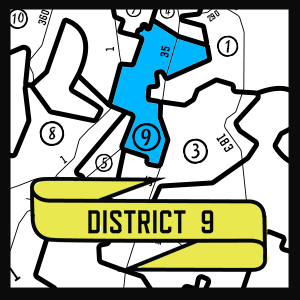Transit, CodeNEXT, homelessness grab attention for District 9 candidates
Monday, October 22, 2018 by
Chad Swiatecki The candidates vying for City Council’s District 9 seat next month have their pick of issues and pain points that need fixing. From transportation to homelessness to the recently scrapped CodeNEXT process to update the city’s Land Development Code, there are plenty of talking points and big things that need fixing in the district that includes most of downtown Austin.
That dynamic was on display early at Tuesday’s District 9 forum organized by KUT, the Austin Monitor, Glasshouse Policy, Austin Tech Alliance and A Functional Democracy and held at Capital Factory.
While other issues like the fate of Austin’s increasingly threatened live music venues and methods to increase accountability and oversight of the Austin Police Department got their time, the big three issues of homelessness, transit and CodeNEXT offered the best chance to see the differences and similarities between candidates Linda O’Neal, Danielle Skidmore and Mayor Pro Tem Kathie Tovo, who is seeking re-election.
On CodeNEXT, Tovo said she’d sounded objections early on when drafts of the controversial plan failed in her eyes to reflect the wishes of Council and community members. Her answer would be keeping pieces of the plan but going to neighborhood plans and other earlier documents for guidance.
“We need a more community-driven process next time, and Council initiated a process with CodeNEXT that would be community-based and look to densify with corridors and community centers,” she said. “On the drafts that came back, I was very consistent that the vision we had was not there nor was it reflective of the community feedback we’d received. Our neighborhood plans provide guidance for that. As we begin redoing the Land Development Code in the future, we need to go back to those earlier visions. There are some things in CodeNEXT that can be salvaged. We did move forward with the density bonus program, and we’re working to get those calibrated.”
O’Neal said a feeling of factionalism between urbanists, neighborhood association and other interest groups led to the plan’s downfall. She said it needs to be repackaged with the same end goal of increasing housing supply.
“Building up is definitely more environmentally friendly than building out. But we are growing so quickly we have to grow up and out, and I don’t see a way you can regulate that without the state interfering,” she said. “When people came to the table and argued, urbanists say, ‘Those guys are the ones who are the bad guys,’ and it got out of hand and poisonous. It’s something that has to get done. We spent $8 million coming up with this plan and throwing it out; wasting taxpayers’ money for nothing seems ridiculous. We should stay with it and listen to the people at the table.”
Skidmore sounded much the same viewpoint, pushing for relationship building and working toward providing housing along transit corridors.
“It became fairly politicized and became frustrating. But just because this process is hard doesn’t mean we should give up,” she said. “We have to find ways to build more housing that is sustainable. We have a Strategic Housing Blueprint, and we need to look at those goals and use them as our guidelines to identify areas in each neighborhood to build more housing. Let’s come together in each neighborhood and identify what that could look like.”
On the matter of homelessness and the situation at the Austin Resource Center for the Homeless, the three candidates presented a spectrum of options from heavy government involvement to turning to greater utilization of models that have worked in the private and nonprofit sectors.
Tovo said Council’s recent push to increase program spending at the ARCH is expected to solve some of the problems there in the near future, and she pointed to a coming revamp of how the facility is operated as another cause for hope.
O’Neal said the city has already relied too heavily on organizations such as the Ending Community Homelessness Coalition to address the issues at the ARCH. However, she also pointed to the success of the Community First! Village run by Mobile Loaves & Fishes as a model that needs to be replicated.
Skidmore called for even more resources to be devoted to the needs of the crowds who gather in front of the overburdened ARCH. She said the upcoming vendor selection to determine the management organization for the facility will be a key decision to determine how it serves the homeless community.
On transit, Tovo said she looks forward to collaboration with the Capital Metropolitan Transportation Authority and other groups to formulate transit plans and begin looking toward a possible mass transit bond package in the future.
Skidmore said focusing on high-capacity transit in dedicated lanes is the only sensible option for the fast-growing city, while working with the state to make sure large construction projects on highways are coordinated with local plans.
O’Neal said she’d supported mass transit plans in the past but isn’t sure she would be in favor of a large bond package for transit in the future. Instead, she said private companies in the ride-share, dockless and last-mile sectors have started to step in, with bus ridership dropping in major metro areas across the country as a result.
The Austin Monitor’s work is made possible by donations from the community. Though our reporting covers donors from time to time, we are careful to keep business and editorial efforts separate while maintaining transparency. A complete list of donors is available here, and our code of ethics is explained here.
You're a community leader
And we’re honored you look to us for serious, in-depth news. You know a strong community needs local and dedicated watchdog reporting. We’re here for you and that won’t change. Now will you take the powerful next step and support our nonprofit news organization?








